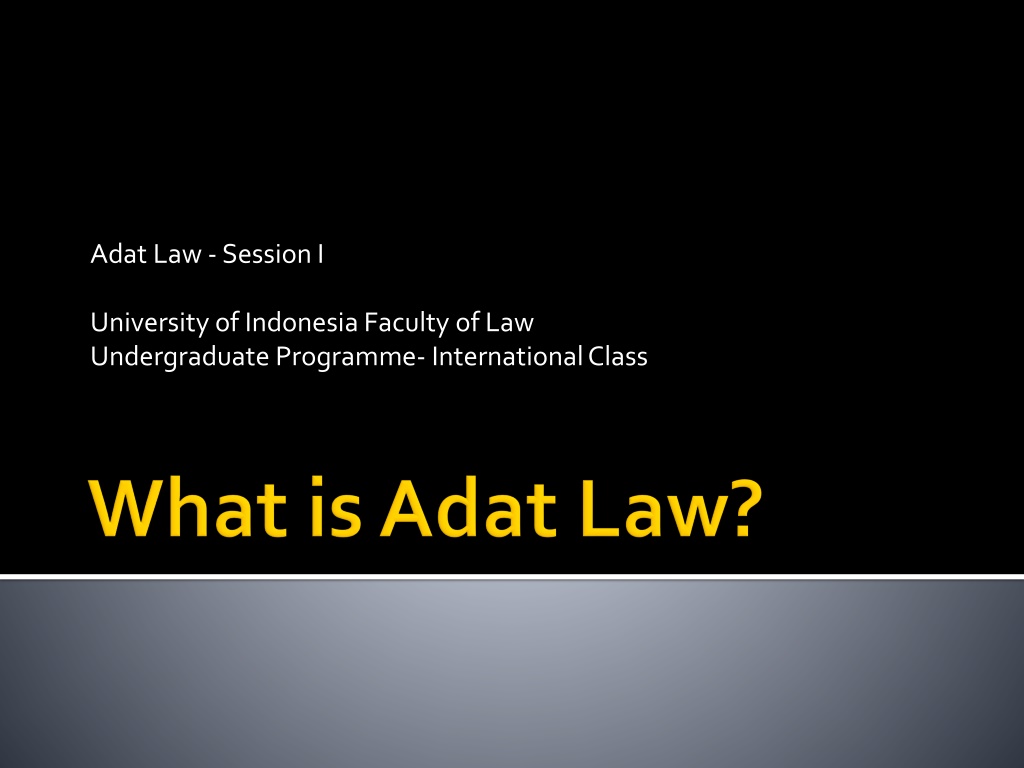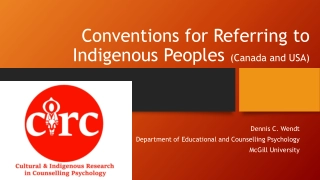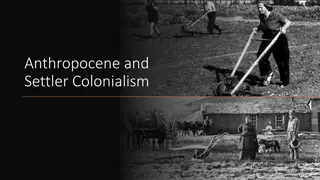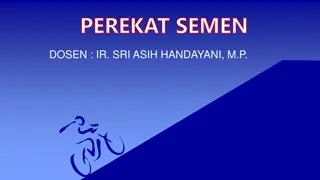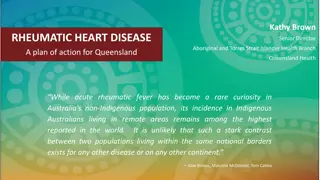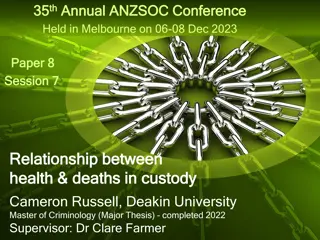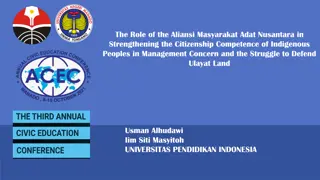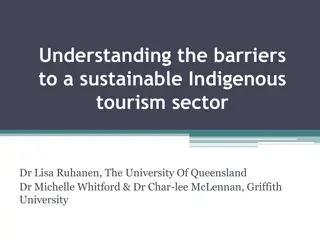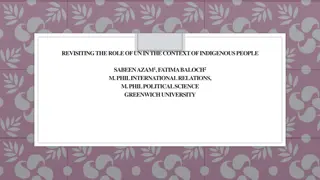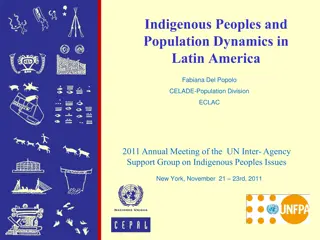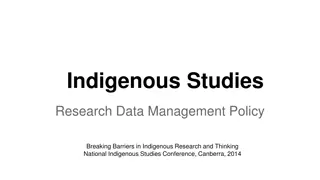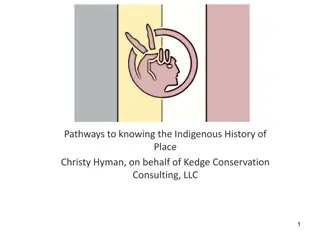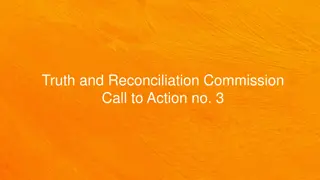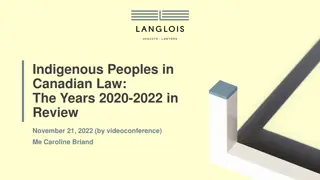Adat Law: Indigenous Legal System in Indonesia
Adat Law, the original laws of Indonesia's indigenous population, reflects a complex interplay between traditional customs and external influences. Rooted in community adherence and legal consequences, Adat Law stands as a distinctive legal framework shaped by historical contexts and colonial legacies, transitioning from VOC trading practices to Dutch governance. The evolution of Adat Law showcases the dynamic nature of legal systems and the integration of religious, social, and public aspects within indigenous communities.
Download Presentation

Please find below an Image/Link to download the presentation.
The content on the website is provided AS IS for your information and personal use only. It may not be sold, licensed, or shared on other websites without obtaining consent from the author.If you encounter any issues during the download, it is possible that the publisher has removed the file from their server.
You are allowed to download the files provided on this website for personal or commercial use, subject to the condition that they are used lawfully. All files are the property of their respective owners.
The content on the website is provided AS IS for your information and personal use only. It may not be sold, licensed, or shared on other websites without obtaining consent from the author.
E N D
Presentation Transcript
Adat Law -Session I University of Indonesia Faculty of Law Undergraduate Programme- International Class
VereenigdeOost-IndischeCompagnie (VOC) was onlya trading company, although possessing quasi-governmental powers. When forced to tackle legal problems pertaining the natives, the Company resorted to the law of the natives. This policy was largely continued by Dutch Government, when it took over VOC assets .
Before all those foreigners came to Nusantara, there were only Adats, or with any name it was called. It was the foreigners who deemed it necessary to think up a new name for Adat, due to differences between their worldview and ours. AdatLaw discourse emerged in response to actual (colonial) governance necessities.
SnouckHurgronjecoined the term Adatrecht, van Vollenhoven used it as a technical-legal term. Before that, Dutch Colonial Government went at length in referring to Adat with these mind- bogging terms. (i) GodsdienstigeWetten, Volksinstellingen en Gebruiken; (ii) Godsdienstige Wetten, Instellingen en Gebruiken;(iii) Instellingen des Volks; (iv)GodsdienstigeWettenen Oude Herkomsten.
Keyser and van den Berg came to a conclusion that the custom and law of a certain people is the complete receptionof the religion it adheres. Snouck Hurgronje and van Vollenhoven refuted the conclusion, arguing that religious laws only influenced private aspects of individual lives, while public aspects remained under old provenances.
AdatLaw is the original laws of indigenous population of Indonesia, derived from rules that live within the communities, adhered to by all members of the communities, and have legal consequences(rechtsgevolg) i.e. if violated will be subject to coercible sanctions. Should the criterion of having legal consequence is not fulfilled, such rules would fall into the category of mere Adat, not Adat Law.
AdatLaw is the whole body of rules that is stipulated in authoritative decisions and thus spontaneouslyenforced by all members of concerning communities i.e. binding without being previously enacted. Adat Law, thus, is known and recognized from the decisions of legal functionaries within concerning communities, as were decided in accordance with structural bonds and values of the concerning communities.
There is somehow a relation, whether direct or indirect, between ethics and law. There is no place, therefore, in a perfect legal system, for rules that are not in accordance with ethics. In the case of AdatLaw , the relation is so direct that we don t need such supposititious term to understand what we mean with Adat, as it is, whether in the notion of ethics or law.
In the new legal system of independent Indonesia, in order to avoid confusion, the term adat law shall best refer to these notions altogether: (i) Unwritten laws that complement legislations or non-statutory laws; (ii) Conventions among state s bodies and agencies; (iii) Laws arising from judges decisions or judge- made law.
individual ethics USAGE common ethics FOLKWAYS MORES CUSTOM Institutionalized, internalized ADAT LAW
definition severity sanction USAGE individual acts very weak reproach acts repeated in the same form reproached by many people FOLKWAYS somewhat strong habits accepted by many people MORES strong punishment habits strongly internalized within the community expelled from community CUSTOM very strong customs with legal consequences adjustment and punishment ADAT LAW very strong
